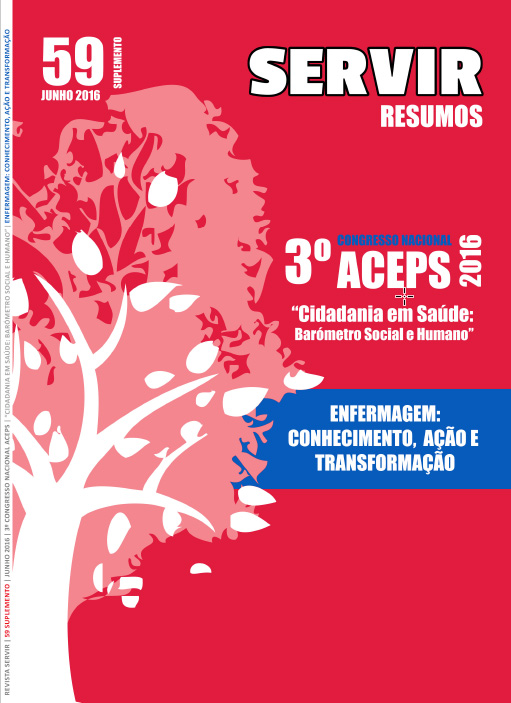Enquadramento dos cuidados de saúde a idosos em contexto rural
DOI:
https://doi.org/10.48492/servir0259.23205Palavras-chave:
Ruralidade, Idosos, Qualidade de vidaResumo
Introdução
Os cuidados de saúde a idosos em contexto rural constituem um tema pertinente e atual, muito devido às alterações demográficas, que têm vindo a configurar uma população envelhecida e só.
É neste enquadramento que interessa analisar a saúde tendo em conta a autonomia, a justiça e a equidade, numa estreita ligação entre o homem e o seu contexto.
Objetivo
- Apresentar o retrato sociodemográfico da população idosa;
- caracterizar sumariamente o estado de saúde do idoso;
(iv) avaliar a perceção da qualidade de vida do idoso.
Métodos
A amostra corresponde a 339 participantes idosos de ambos os sexos, residentes em freguesias rurais de um concelho do interior norte do país.
Trata-se de um estudo descritivo e correlacional, de natureza quantitativa, utilizando a escala de perceção da qualidade de vida (WHOQOL-Bref) e Survey of Health, Ageing and Retirement in Europe (SHARE).
Resultados
Dos resultados constata-se: uma amostra maioritariamente feminina; casados (55,5%); 41,3% vive só; baixo grau de instrução (60,2%); rendimento mensal inferior a 500 euros (90,9%). Predominam as doenças osteoarticulares (75,2%), a fadiga (49,0%) e problemas com o desempenho das atividades habituais (37,5%). Salienta-se que 87,3% toma medicação, mais de 5 fármacos, predominando o grupo farmacológico dos cardiovasculares (92,4%) e analgésicos (91,8%).
Os idosos percepcionam a qualidade de vida como boa, sendo superior nos homens (58,2%). Verifica-se que o sexo feminino evidencia mais sentimentos de solidão e pior perceção de qualidade de vida e que esta diminui com a idade e aumenta com o nível de instrução e o rendimento.
Conclusões
Torna-se imperativo redimensionar a práxis dos profissionais de saúde na implementação de programas e ações concretas que tomem em consideração noções como literacia e a acessibilidade em saúde, de forma a configurar modelos de ação mais intersectoriais e (co) participativos.
Downloads
Downloads
Publicado
Como Citar
Edição
Secção
Licença
No intuito de promover a livre circulação do conhecimento, a Servir funciona em regime de acesso livre (open access). Todo o seu conteúdo está disponível e protegido sob a licença Creative Commons (CC BY 4.0).
A revista permite o auto-arquivo em repositórios institucionais de todas as versões, podendo ficar imediatamente disponíveis.


